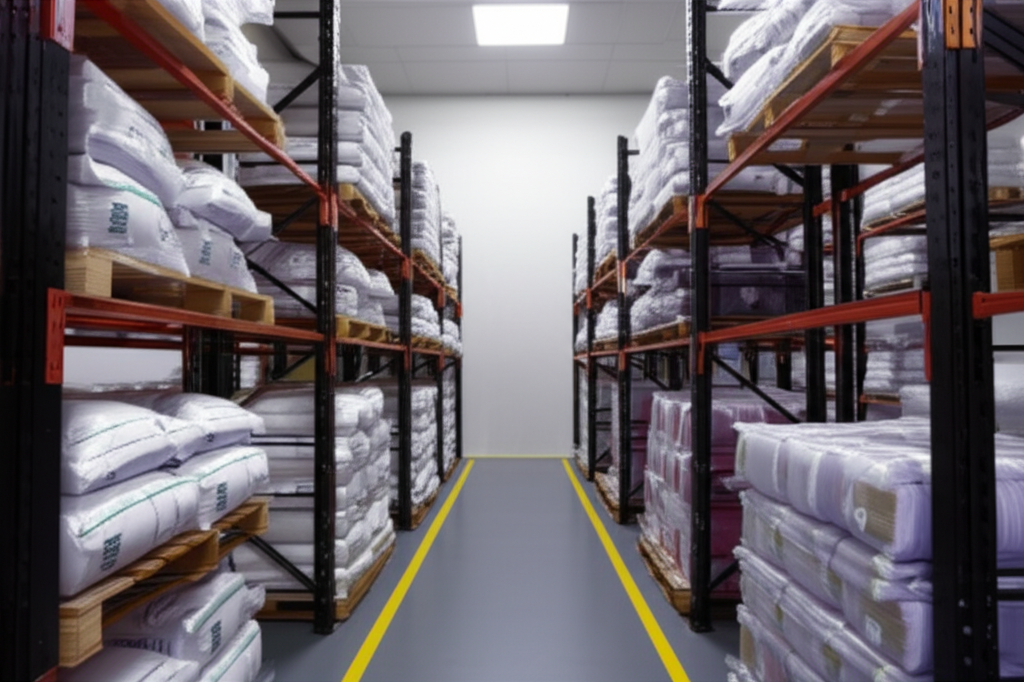Sodium Carboxymethyl Cellulose, commonly known as CMC, stands as a cornerstone in numerous industrial applications due to its exceptional versatility and functional properties. This anionic cellulose ether, derived from natural cellulose sources, typically presents as a white or slightly yellowish powder or granules. When dispersed in water, it readily forms a colloidal solution exhibiting high viscosity, making it an indispensable additive across a wide spectrum of industries.
The fundamental properties that make CMC so valuable include its ability to act as a thickener, stabilizer, suspending agent, binder, emulsifier, and film former. These diverse functions stem from its molecular structure, which allows it to interact effectively with water and other substances, modifying rheology, enhancing stability, and improving the overall performance of formulations.

One of the key applications where CMC demonstrates significant impact is in the textile industry, specifically in warp sizing. Warp yarns, which run lengthwise in woven fabrics, are subjected to considerable stress and abrasion during the weaving process on looms. Applying a sizing agent to these yarns is crucial to increase their strength, smoothness, and elasticity, thereby reducing breakages and improving weaving efficiency.
CMC slurry, rich in viscosity and film-forming capability, creates a smooth, wear-resistant, and flexible film on the surface of the warp yarn. This coating allows the yarn to withstand the high mechanical forces, rapid movements, and friction inherent in modern, high-speed weaving machinery, enabling the production of more delicate and high-level fabrics. The benefits of using CMC in textile sizing are multifaceted. Yarn treated with CMC tends to be easier to dry, exhibits bright color and improved gloss, and possesses a soft feel.
Furthermore, desizing – the process of removing the sizing agent after weaving – is significantly more convenient and less energy-intensive compared to other sizing agents. Fabrics treated with CMC are also less prone to common defects such as yellowing, mold growth, pulp spots, and oil stains. Its protective film can even deter insect and rodent damage, contributing to better storage and handling.
Beyond textiles, Sodium Carboxymethyl Cellulose finds widespread utility in many other sectors. In the oil drilling industry, it is used as a drilling fluid additive to control viscosity, suspend drill cuttings, and reduce fluid loss in boreholes. Its high viscosity stability and water retention properties are particularly beneficial in diverse geological conditions.
In the paper industry, CMC is employed in surface sizing and coating applications to improve paper strength, smoothness, printability, and resistance to water and oil. It also serves as a retention aid and wet-end additive.
The food industry utilizes food-grade CMC as a thickener, stabilizer, emulsifier, and texturizer in products ranging from ice cream and beverages to sauces and bakery goods, contributing to desired consistency, shelf life, and mouthfeel.
Other significant applications include its use as a binder and suspender in ceramics, a thickener in paints and coatings, a dispersant in detergents, and a key ingredient in toothpaste for its binding and thickening properties.
The technical advantages of high-quality CMC powder include its excellent solubility, resulting in highly transparent solutions with minimal gel content, which is crucial for applications requiring clarity and smooth processing. Its favorable rheological properties ensure consistent flow and application, essential for processes like printing or coating. Good viscosity stability, high water retention capacity, and desirable net permeability further enhance its performance in various formulations, contributing to improved product quality and processing efficiency.
Producing high-quality Sodium Carboxymethyl Cellulose requires rigorous manufacturing processes, typically involving the alkalization and etherification of purified cellulose followed by drying and grinding. Consistency in particle size, purity, and degree of substitution is vital to ensure predictable performance in end-use applications. Adherence to international quality standards, such as ISO9001, is a hallmark of a reliable supply.
For industries relying on the performance of Sodium Carboxymethyl Cellulose, finding a reliable manufacturer is paramount. A reputable supplier can offer various grades tailored to specific application requirements and ensure consistent quality from batch to batch. When evaluating potential sources, understanding the price structure and the factors that influence price, such as volume, grade, and packaging, is essential for effective procurement. Companies looking to buy or purchase Sodium Carboxymethyl Cellulose should seek partners with proven production capacity, stringent quality control, and a deep understanding of its diverse applications. Engaging with experienced suppliers facilitates smooth transactions and ensures access to technical support when needed, ultimately contributing to the success of product development and manufacturing processes.
Manufacturing Facilities






Professional Export Experience
to Global Customers

1. 20 years of R&D, manufacturing and sales experience, serving customers in 60 countries and regions around the world;
2. Own R&D laboratory, pilot platform and large-scale production workshop, which can meet the audit requirements of global customers;
3. We can satisfy customers' perfect transition from small scale lab requirements (gram level) to commercialization requirements (hundred tons level).
A: We don't have Minimum Order Quantity, exact quantity should be provided before quotation for us to calculate the exact cost.
A: We don't provide free samples due to lots of request and expensive international courier's cost, we can deduct the sample charge after commercial order placed.
A: Our payment terms: Small or sample order: T/T IN ADVANCE. Commercial order: First order should be by T/T IN ADVANCE or L/C at sight, and following orders T/T 30~90days is acceptable subject to approval of credit application.